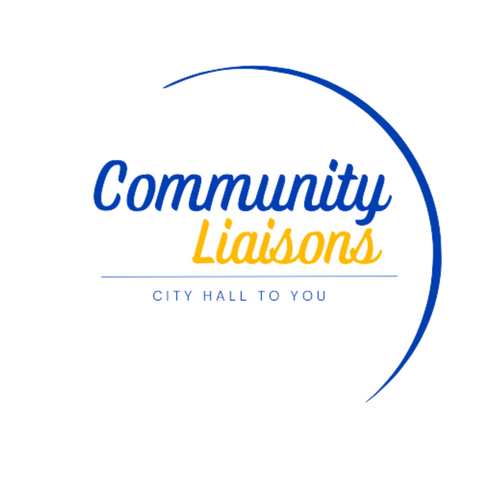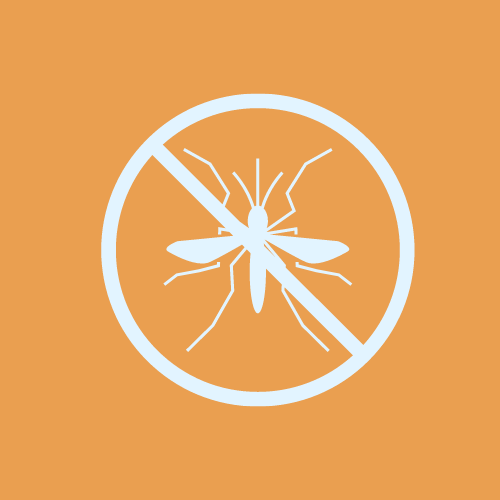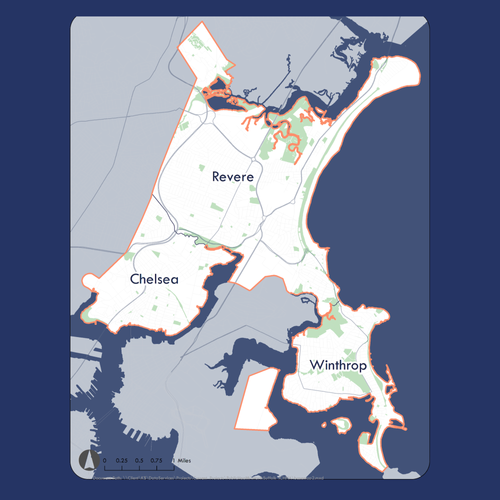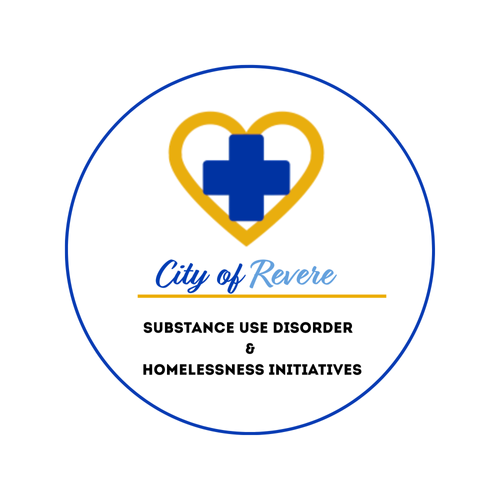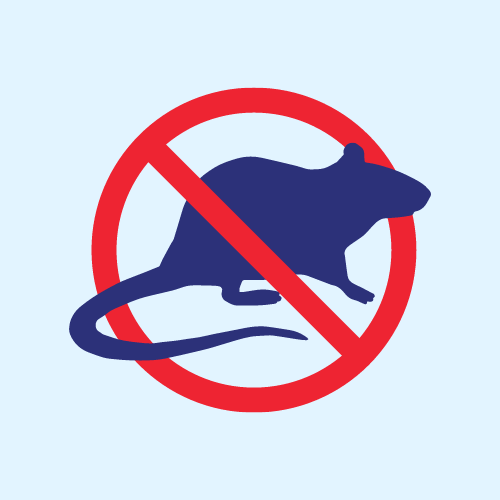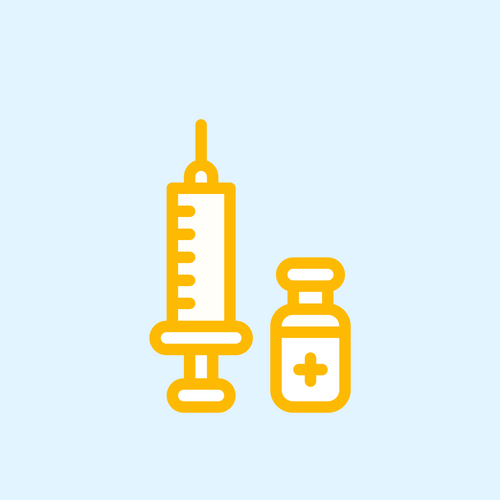Public Health Division
Looking for Food Resources in our area: Interactive Food Map (updated regularly)
For more information about the 2026 Emergency Warming Center, see below:
- Location: Iglesia Luz de Cristo (738 Broadway, Chelsea)
- Opening and Closing Date: Monday, January 5, 2026 - Tuesday, March 31, 2026
- Hours of Operation: 7:00 PM - 7:00 AM (only will accept entry into the facility between 7:00 PM - 10:00 PM), 7 days a week
In The News
The Massachusetts Department of Public Health (DPH) is issuing this notification to inform clinicians of a change in recommended reference materials for pediatric immunization schedules.
DPH has a longstanding and ongoing commitment to promoting evidence-based immunization practices that protect communities from vaccine preventable illnesses. Following a review of recent changes to the Centers for Disease Control and Prevention (CDC) pediatric immunization schedule, DPH now recommends that clinicians in Massachusetts use the American Academy of Pediatrics (AAP) Recommended Child and Adolescent Immunization Schedule as the primary reference for the routine immunization of infants, children, and adolescents.
DPH recognizes the importance of clear, consistent, and evidence-based guidance to facilitate safe and effective vaccination practices. AAP is a national professional organization representing pediatric physicians, and its immunization schedule is developed by pediatric experts and updated regularly to reflect current evidence and clinical best practices for immunizing children and adolescents. The AAP immunization schedule aligns with science-backed pediatric standards of care and provides detailed guidance that supports clinical decision-making in pediatric settings.
Clinicians should continue to follow all applicable state requirements, including the immunization requirements for school and camp entry (aligned with AAP recommendations), and reporting obligations, including documentation of administered immunizations in the Massachusetts Immunization Information System (MIIS).
DPH will continue to monitor national immunization policy updates and will communicate any additional guidance as needed. Thank you for your continued commitment to protecting the health of Massachusetts children and families.
Resources
- The American Academy of Pediatrics Recommended Child and Adolescent Immunization Schedule
- Massachusetts Immunization Requirements for School and Camp Entry
- Massachusetts Immunization Information System (MIIS)
- AAP Communicating with Families and Promoting Vaccine Confidence
- DPH recommended guidance for vaccines
The Massachusetts Department of Public Health (DPH) is reporting very high and rising levels of influenza activity statewide as the Commonwealth moves through peak flu season. Thousands of residents have become ill, forcing them to miss work, school, and other activities. Many are experiencing serious complications, leading to increased visits to urgent care centers and emergency departments, and high levels of hospitalization.
The current widespread burden of illness underscores the importance of taking preventive measures, especially vaccination, to reduce severe disease and protect individuals, families, and communities.
Tragically, influenza has already been reported to be associated with the deaths of three pediatric patients in Massachusetts during recent weeks. In addition, there have been 29 adult influenza deaths reported so far this season. While COVID-19 and respiratory syncytial virus (RSV) rates currently remain low, cases of both illnesses are beginning to rise. DPH is reviewing two possible COVID-19-associated deaths and one RSV-associated death in individuals younger than 18 years.
“This is a moment for clarity, urgency, and action,” said Public Health Commissioner Robbie Goldstein, MD, PhD. “These viruses are serious, dangerous, and life-threatening. We are seeing children who are seriously ill, families grieving devastating losses, and hospitals under capacity strain. There is a simple, effective, and available way to address these concerns: vaccines. They can prevent serious illness and hospitalization. And they save lives. If you have not yet been vaccinated against flu or COVID-19 this season, now is the time. It is not too late. Choosing vaccination is choosing to protect yourself, your family, your friends, your colleagues, and your community.”
Hospitals across Massachusetts are continuing to see high numbers of patients seeking care for respiratory illness. Each day last week, there were nearly 9,000 emergency department visits statewide, with approximately one-quarter of those related to acute respiratory illness, including flu, COVID-19, and RSV. Some regions in the state reported challenging hospital capacity levels exceeding 90% in medical-surgical units, largely related to influenza.
DPH urges everyone 6 months of age and older to stay up to date on flu and COVID-19 vaccinations. These annual shots can be given at the same visit and are available from local boards of health, community health centers, pharmacies, and many health care providers.
Vaccination is especially important for people at higher risk of severe disease, including adults age 65 years and older, children between 6 months and 2 years old, people with chronic respiratory conditions or heart disease, individuals who are immunocompromised, and people who are pregnant. Vaccination also helps protect family members, coworkers, and others in the community who may be more vulnerable to serious illness.
For RSV, one-time immunization is recommended for adults age 75 and older, those aged 50-74 who have conditions that put them at increased risk, and people who are pregnant. For infants and children, parents should talk with their child’s health care provider about RSV immunization. It is recommended that infants younger than 8 months be immunized if the birth parent did not receive the RSV shot during pregnancy. Children between 8 and 19 months who are at increased risk because of certain pulmonary or immune system disorders should also be immunized.
In Massachusetts, vaccines are covered by insurance and are available at no cost for almost all adults. All vaccines for individuals younger than 18 years are supplied free of charge to health care providers through the state’s universal childhood immunization program.
For those who begin to experience flu symptoms – which include high fever, chills, muscle aches, headache, extreme fatigue, cough, sore throat, and congestion – antiviral medications, such as oseltamivir (Tamiflu), are available by prescription. When started early, these medications can significantly reduce the severity of illness. Parents are encouraged to seek medical advice promptly if they or their children develop flu-like symptoms.
Spending time indoors and around larger groups increases the likelihood of exposure to respiratory viruses. The following everyday measures can help prevent illness:
- Stay up to date on flu and COVID-19 vaccinations
- Wash hands frequently with soap and water
- Stay home when sick
- Cover coughs and sneezes
- Consider wearing a mask in crowded indoor settings, especially if you or a loved one is at higher risk.
DPH continues to closely monitor respiratory activity and hospital capacity across Massachusetts. Up-to-date data are available on the DPH respiratory virus dashboard.
Despite some improvements, drought conditions have continued in most of Massachusetts. The Cape and Islands Regions and Millers Basin are at Level 2-Significant Drought, while the Connecticut River Valley, Central and Northeast Regions are at Level 1–Mild Drought. The Western and Southeast Regions are at normal condition.
How can the general public help?
- Conserve overall water use, especially indoors
- Shut off/winterize sprinkler systems, disconnect hoses, and wrap spigots/backflows
- Limit any remaining watering to one day a week
- Identify and stop any water leaks inside your home
- Avoid removing outlet boards/stop logs that manage pond and lake levels
|
||
The North Suffolk Public Health Collaborative conducts a Community Health Needs Assessment (CHNA) for the communities of Revere, Chelsea, and Winthrop. The 2025 CHNA can be accessed here.
BOSTON (November 11, 2025) — The Massachusetts Department of Public Health (DPH) is advising parents, caregivers, and health care providers that ByHeart Inc. is recalling its infant formula because it may be contaminated with the bacteria Clostridium botulinum that can make infants sick. No cases of infant botulism have been identified in Massachusetts.
On November 8, 2025, the Centers for Disease Control and Prevention (CDC) and U.S. Food and Drug Administration (FDA) posted that they were investigating an outbreak of infant botulism linked to ByHeart powdered infant formula. As a result of the investigation, ByHeart Inc. on November 11 voluntarily recalled all lots of powdered Whole Nutrition Infant Formula. ByHeart products are distributed online and nationwide. Caregivers are advised not to use ByHeart formula.
Formula from ByHeart Whole Nutrition Infant Formula should be thrown away immediately or returned to the store where they were purchased. Before disposing of any ByHeart formula, write down or take pictures of the lot numbers, which can be found on the bottom of the cans. Check for any formula you may have removed from the original can and placed in another container. Wash all items and surfaces that may have touched the recalled formula using hot soapy water or a dishwasher.
Infant botulism is a rare and serious illness that is caused when infants inhale or swallow the spores produced by Clostridium botulinum bacteria. Under certain conditions, the spores can grow inside the infant and produce toxins that can make infants very sick. Symptoms can take anywhere from several days to several weeks to appear.
Most infants with infant botulism may develop constipation, poor feeding (sucking and swallowing), loss of head control, and difficulty swallowing. Other symptoms may include decreased facial expression, a weak or altered cry, or other signs of muscle weakness. Infants with botulism must be treated quickly to stop symptoms from progressing to flaccid (floppy) paralysis and breathing difficulties.
Caregivers should seek immediate medical care for their infant if they consumed ByHeart Whole Nutrition Infant Formula and develop any symptoms of infant botulism. Health care providers should immediately report any cases of suspected infant botulism to their local health department or DPH 24/7 at (617) 983-6800.
Infants who consumed the recalled infant formula should be monitored for symptoms for 30 days after their last exposure to the formula. There is no testing or treatment recommended for infants who consumed the recalled formula but who do not have symptoms of infant botulism.
Caregivers should contact their infant’s pediatrician or health care provider if they have any questions about their infant’s health. Individuals with questions about the recall may contact FDA at the link below or the DPH Division of Food Protection at fpp.dph@mass.gov or (617) 983-6712. Updates to the national investigation are expected to be posted on the CDC’s and FDA’s webpages as they become available:
Infant Botulism Outbreak Linked to Infant Formula, November 2025 | CDC
Outbreak Investigation of Infant Botulism: Infant Formula (November 2025) | FDA
In Response to a Broader FDA Investigation, ByHeart Initiates a Voluntary Recall of Two Batches of Infant Formula | FDA Includes pictures of the recalled product and how to find lot code information.
According to FDA, ByHeart Whole Nutrition Infant Formula makes up an estimated less than 1% of all infant formula sold in the United States, and this outbreak does not currently create any concerns of a possible shortage in infant formula.
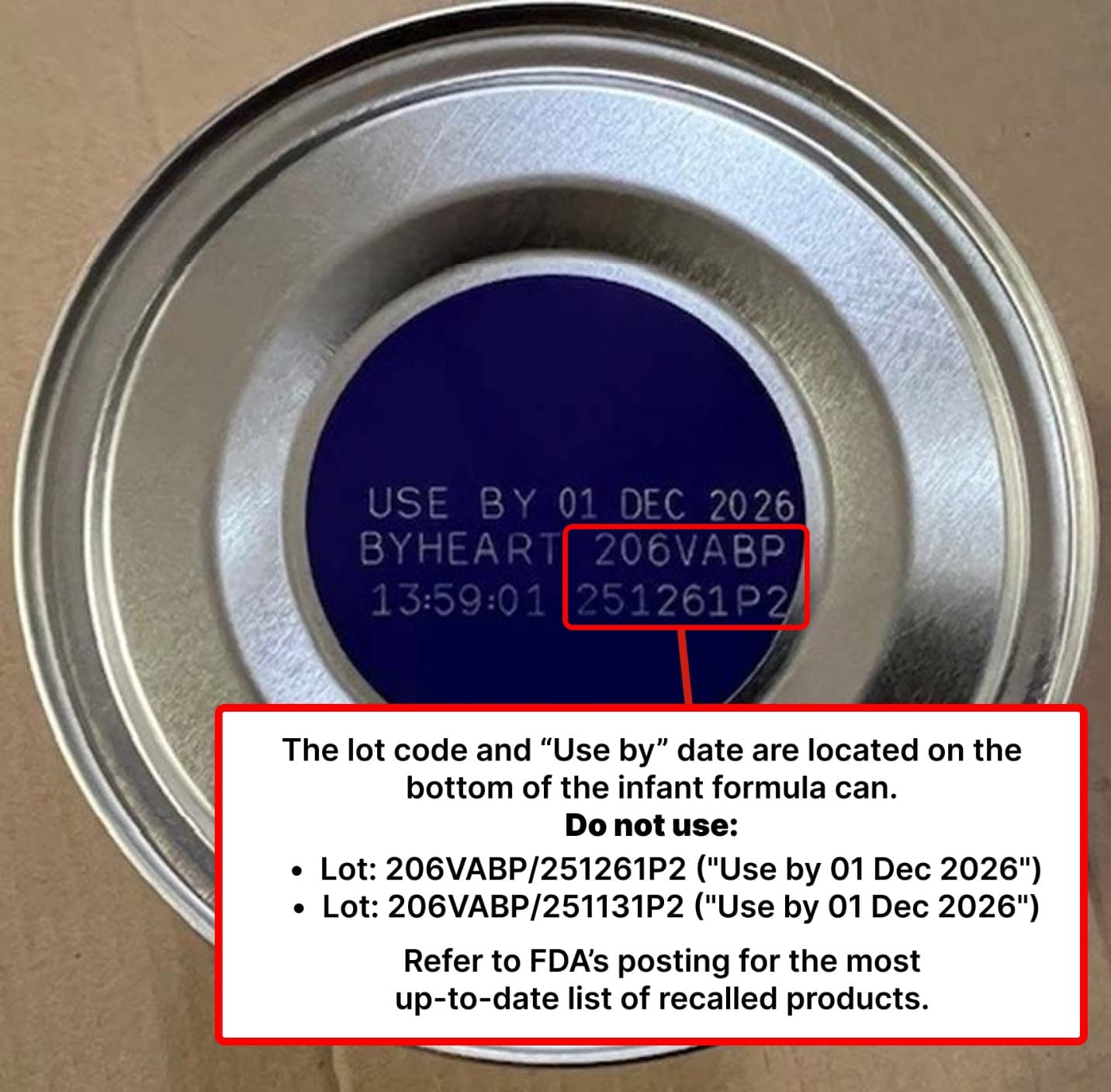
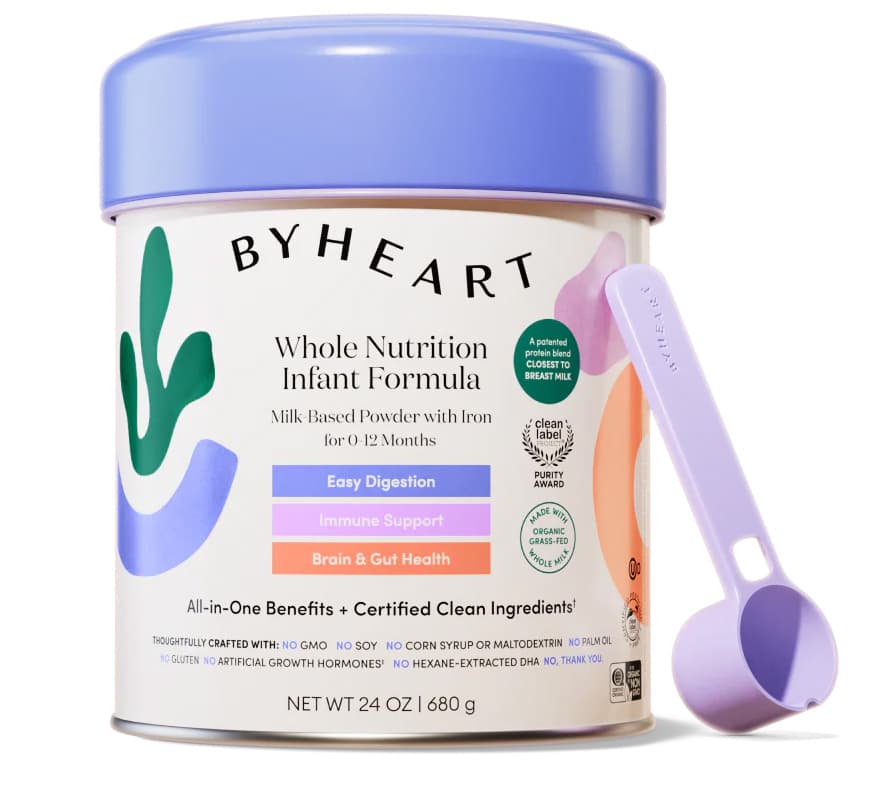
The Revere Fire Department and Revere Emergency Preparedness Manager are teaming up with the National Fire Protection Association (NFPA) - the official sponsor of Fire Prevention Week (FPW) for more than 100 years - to promote this years' FPW campaign, "Charge into Fire Safety: Lithium-Ion Batteries in Your Home." It highlights how important it is to buy, charge, and recycle lithium-ion batteries safely.
Most of the electronics we use in our homes every day - smartphones, tablets, power and lawn tools, laptops, e-cigarettes, headphones, and toys - are powered by lithium-ion batteries. In fact, most everything that's rechargeable uses this type of battery.
If not used correctly or if damaged, lithium-ion batteries can overheat, start a fire, or even explode. To reduce these risks, look around your home - it's important to know which devices are powered by them.
Buy only listed products.
- When buying a product that uses a lithium-ion battery, take time to research it. Look for a stamp from a nationally recognized testing lab on the packaging and product, which means that it meets important safety standards.
- Many products sold online and in stores may not meet safety standards and could increase the risk of fire.
Charge devices safely.
- Always use the cords that came with the product to charge it. Follow the instructions from the manufacturer.
- If you need a new charger, buy one from the manufacturer or one that the manufacturer has approved.
- Charge your device on a hard surface. Don’t charge it under a pillow, on a bed, or on a couch. This could cause a fire.
- Don’t overcharge your device. Unplug it or remove the battery when it’s fully charged.
Recycle batteries responsibly.
- Don’t throw lithium-ion batteries in the trash or regular recycling bins because they could catch fire.
- Recycling your device or battery at a safe battery recycling location is the best way to dispose of them. Visit call2recycle.org to find a recycling spot near you.
Come to Revere's Fire Prevention Open House on Saturday, October 11, 2025 from 11:00 AM - 2:00PM at Revere Central Fire Station on 400 Broadway. Free Pizza and Giveaways. Touch-A-Truck with Water Spray will happen at 11:30 and A Ladder Truck demonstration will happen at 12:30. All are welcome!

The Massachusetts Department of Public Health (MDPH) announced today that West Nile virus (WNV) has been detected in mosquitoes collected from Revere, Massachusetts. In 2024, 8,597 mosquito samples were tested for WNV and 333 samples were positive. As of today, July 31, 2025 Revere’s risk level for West Nile Virus is now moderate.
WNV is most commonly transmitted to humans by the bite of an infected mosquito. The mosquitoes that carry this virus are common throughout the state and are found in urban as well as more rural areas. While WNV can infect people of all ages, people over the age of 50 are at higher risk for severe infection.
By taking a few, common sense precautions, people can help to protect themselves and their loved ones:
Avoid Mosquito Bites
- Apply Insect Repellent when you go outdoors. Use a repellent with DEET (N, N-diethyl-m-toluamide), permethrin, picaridin (KBR 3023), IR3535 or oil of lemon eucalyptus [p-methane 3, 8-diol (PMD)] according to the instructions on the product label. DEET products should not be used on infants under two months of age and should be used in concentrations of 30% or less on older children. Oil of lemon eucalyptus should not be used on children under three years of age. Permethrin products are intended for use on items such as clothing, shoes, bed nets and camping gear and should not be applied to skin.
- Clothing Can Help reduce mosquito bites. Although it may be difficult to do when it’s hot, wearing long-sleeves, long pants and socks when outdoors will help keep mosquitoes away from your skin.
- Be Aware of Peak Mosquito Hours - The hours from dusk to dawn are peak biting times for many mosquitoes. When risk is increased, consider rescheduling outdoor activities that occur during evening or early morning. If you are outdoors at any time and notice mosquitoes around you, take steps to avoid being bitten by moving indoors, covering up and/or wearing repellant.
Mosquito-Proof Your Home
- Drain Standing Water– Many mosquitoes lay their eggs in standing water. Limit the number of places around your home for mosquitoes to breed by either draining or getting rid of items that hold water. Check rain gutters and drains. Empty any unused flowerpots and wading pools and change water in birdbaths frequently.
- Install or Repair Screens- Some mosquitoes like to come indoors. Keep them outside by having tightly-fitting screens on all your windows and doors.
Revere continues to work closely with the MDPH and other agencies including Northeast Massachusetts Mosquito Control and Wetlands Management District to provide regular mosquito population control measures. You can learn more about this partnership at http://www.revere.org/departments/public-health-division or www.nemassmosquito.org.
Information about WNV and reports of current and historical WNV virus activity in Massachusetts can be found on the MDPH website at: www.mass.gov/dph/mosquito.
A heat wave is expected in Massachusetts from June 22 - 24, 2025. During this time, temperatures will reach unhealthy levels.
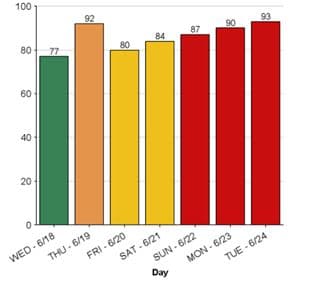
This week’s forecasted heat wave marks the first of the season— when the risk is highest. Data show that heat-related illnesses and hospital visits spike during the first stretch of 85°F days, before people have acclimated to the heat. Please take extra care if you are part of a vulnerable population (Elderly, children, outside workers, and chronically ill), check on those at risk, and use the tools and resources available to help your patients and community stay safe.
For more information: Extreme heat | Mass.gov
From the Massachusetts Department of Public Health:
DPH is warning the public about a growing cluster of botulism cases linked to cosmetic botulinum toxin (commonly referred to as 'Botox') injections administered at Rodrigo Beauty, located at 464 Granite Ave. in Milton, Mass. As of today, 10 cases of suspected iatrogenic botulism are under investigation, all associated with procedures performed at this spa. Iatrogenic botulism is a rare but serious illness caused by botulinum toxin spreading beyond the injection site, potentially leading to life-threatening symptoms. Anyone who received Botox injections at Rodrigo Beauty between May 1 and June 4 this year is strongly urged to contact the Massachusetts Department of Public Health at 617-983-6800. Anyone who had Botox injections at this location and is experiencing symptoms should go to the nearest emergency department. Early recognition and treatment can significantly improve outcomes. Patients and healthcare providers should be alert for symptoms such as blurred or double vision, drooping eyelids, slurred speech, difficulty swallowing, or difficulty breathing following Botox injections. DPH continues to emphasize the importance of seeking cosmetic procedures only from licensed professionals in accredited medical settings.
City of Revere Vaccine Program
The City of Revere Public Health Department operates several vaccine clinics throughout the year.
Vaccine Clinics are now complete for the 2025-2026 Respiratory Illness season. Check back in the fall for our next round of clinics.
- Learn more about vaccines here.
- Learn more about the Massachusetts School Immunization Requirements (2025-2026) here.
- Learn more about the Childhood and Adolescent Immunization Schedule here.
- Learn more about the Adult Immunization Schedule here.

Vaccine Clinics are now complete for the 2025-2026 Respiratory Illness season. Check back in the fall for our next round of clinics.
The City of Revere Public Health Nurses operate seasonal flu and respiratory vaccine clinics during the fall months. We offer both the Regular Dose Flu Vaccine (recommended for anyone 6 months or up) and the High-Dose Flu Vaccine (recommended for anyone 65 years or older).
Learn more about the High-Dose Flu Vaccine here.
Are you or a loved one homebound?
We provide fall respiratory vaccines to homebound Revere residents in October and November each year. If you are interested in getting a vaccine in your home for you or a family member please fill out this form and someone from the Public Health Department will get back to you within one business week. This year (2025) we are offering Flu, COVID-19, and Pneumococcal vaccines to Revere's homebound population. Call 781-485-8486 if you have any questions or to schedule your appointment.
Do you want a flu vaccine but don't have insurance?
Call the Public Health Department at 781-485-8486 to find out more information on how to obtain a free flu shot, even if you don't have insurance.
Do you want an easy way to get your flu shot without going to a local pharmacy?
Come to the Public Health Department (281 Broadway - Basement Level) every Wednesday from 3:00 - 5:00 pm until November.
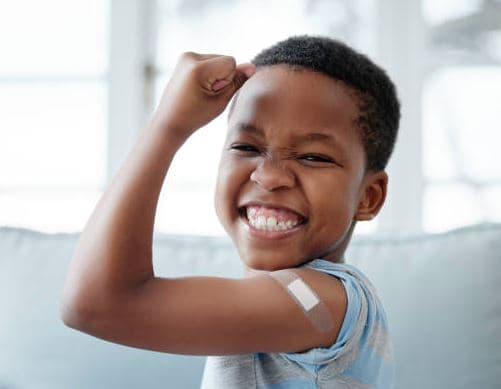
The City of Revere Public Health Nurses work in collaboration with Revere Public School nurses and the Revere Public School Parent Information Center (PIC) to review immunization records, schedule vaccine appointments for eligible children, and follow-up to complete vaccination series.
- Vaccine clinics occur weekly, throughout the year, on an appointment-only basis.
- This clinic is open to anyone age 5 - 18 years old.
- Vaccines are issued through the federal Vaccines for Children program.
- Vaccines are free of charge. No insurance is needed to be eligible for an appointment.
To reach the Revere Public Schools Parent Information Center, call 781-485-8453.
For general questions, please call the Public Health Department at 781-485-8486.
There are many other vaccines available at this time. Some include:
The City of Revere Public Health Department does not offer any of the above vaccines at this time. We recommend calling your primary care provider first to see if they suggest and offer any of the above vaccines. Next, you can schedule vaccination appointments at a local pharmacy like:
All answers are provided by Your Local Epidemiologist in collaboration with the Yale School of Public Health.
- Are childhood vaccines safer than the diseases themselves? Yes, the benefits continue to outweigh the risks for routine vaccine-preventable diseases. For example, the risks of side effects from a measles-mumps-rubella (MMR) vaccination are vanishingly small, especially compared to the devastating effects of measles.
- Do children really need vaccinations, even if the disease is not still around? Although many diseases, like measles, are no longer widespread in most U.S. communities, children still need vaccinations to maintain their immunity. These diseases are still alive and well in other parts of the world. Think of population immunity like a water dam built to prevent flooding. Once it's built, we won't have flooding anymore. But if the next generation comes along and says, "Hey, there's no flooding anymore- do we really need this dam?" and decides to get rid of it, the flooding would return quickly. Your probability of encountering measles or polio is low because so many people around you are vaccinated. When adults and kids are vaccinated against common diseases, it helps protect people whose immune system isn't fully functioning or who haven't been able to be vaccinated yet.
- Ho do we know vaccines are safe? Are they ever taken off the market? Rigorous, ongoing scrutiny of vaccine safety continues long after clinical trials conclude. This is important because even among the largest trials involving tens of thousands of volunteers, scientists may not detect a very rare safety concern that may emerge only after millions of doses.
- Children receive so many more vaccines these days. Why? Is this ok? This is true. Children born before the 1990s received far fewer vaccines than today's kids. However, over the years, we have gotten better at developing vaccines. We target immune protection far more effectively. Over the years, scientists got smarter at targeting viruses and bacteria - exposing children to fewer and fewer parts of the microbe to stimulate the immune system. This is one way scientists and physicians know that the number of childhood vaccines cannot overwhelm immune systems.
- Why do some children still get sick with a disease after being vaccinated? Vaccines significantly reduce the likelihood of getting sick from infectious diseases and, in many cases, reduce transmission. Most vaccines, however, do not completely eliminate the risk of becoming infected with the disease.
Mon. 8:15 am – 5 pm
Tues. 8:15 am – 5 pm
Wed. 8:15 am – 5 pm
Thur. 8:15 am - 5 pm
Fri. 8:15 am - 12:15 pm



